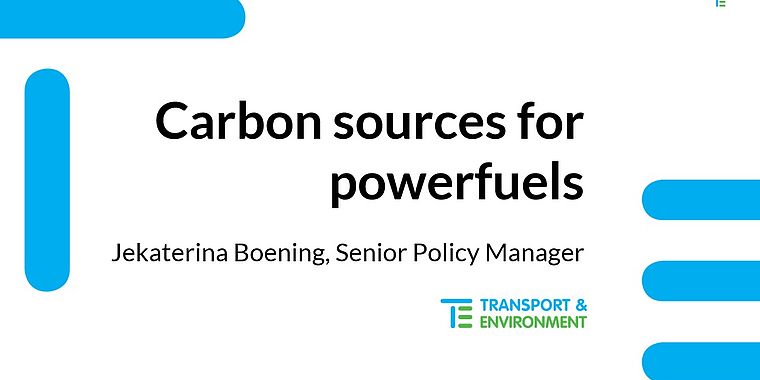Carbon-based powerfuels such as synthetic kerosene, methanol or diesel will be necessary for far-reaching emission reductions across different sectors and applications. For their production, carbon dioxide is required as a feedstock material. This utilisation of CO2 as a raw material is still a novel idea and so far, there is no common understanding among stakeholders on which carbon sources to use for powerfuels production. In addition, the current European regulatory framework offers little indication regarding which type of carbon sources are eligible in order for the produced powerfuels to be considered as renewable. It is therefore vital to define which carbon sources are eligible for use in powerfuels production. Time is especially pressing as uncertainty about how emission reductions through the capture and re-use of CO2 are to be credited is currently undermining the planning and investment security that would enable the market ramp-up of powerfuels.
To add to the pan-European multi-stakeholder discussion on this issue, the Alliance presented its latest discussion paper on carbon sources for powerfuels production to an audience of around 55 stakeholders from industry, NGOs and government in an interactive digital event. As external guest speakers, Jekaterina Boening, Senior Policy Manager, Transport & Environment, and Stefan Gielis , EU Affairs Manager, CO2 Value Europe, highlighted the positions of their respective organisations. Further points were raised in the Q&A session, including potential implications with regard to the regulatory framework, e.g. the revised Renewable Energy Directive (RED II).
Stakeholders generally agreed on the requirement that no new industrial carbon streams should be eligible for powerfuels production and that intensification of emission streams from existing industrial installations should equally be excluded. Furthermore, there was general consensus on the important role of CO2 provided from ambient air via Direct Air Capture (DAC) technologies in the long-term; however, the timeline for a potential phase-out of industrial point sources for powerfuels production remained a point at issue. Several stakeholders argued in favour of additional instruments to facilitate the market ramp-up and cost competitiveness of DAC technologies. The advantages and challenges linked to different potential crediting mechanisms to account for emissions as well as emission reductions associated with capturing CO2 from the different sources and using it for powerfuels were also discussed. It was concluded that carbon-based powerfuels will be needed in a future defossilised economy, and hence clarity regarding the eligibility of different carbon sources to provide CO2 for powerfuels, e.g. in the REDII, is needed. As many questions, e.g. vis-à-vis the design of a crediting mechanism integrated in the existing European regulatory framework, are still unresolved, the Global Alliance Powerfuels is committed to continue contributing to the ongoing multi-stakeholder discussion on the topic.




